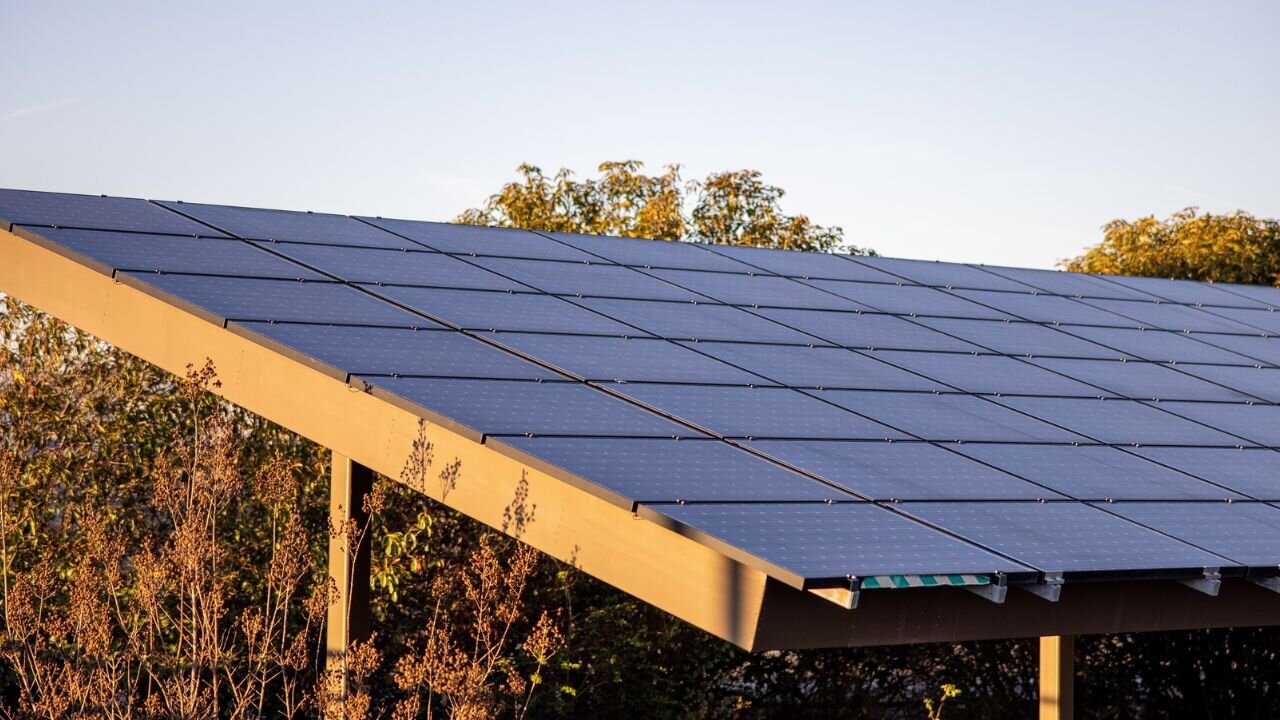Premium Only Content

Majority of Americans use cost-effective ways of staying eco-friendly
Three in five Americans care just as much about saving the environment as they do about saving money, new research suggests.
As part of a recent survey into the sustainability habits of 2,000 U.S. residents, 64% of those polled said they care about the health of the planet and their wallet in equal measure.
And 66% claimed they’d be “willing to try anything that can help save the environment” – although naturally, certain habits proved much more popular than others.
For 75% of respondents, it’s as easy as turning off the lights when leaving a room. Similarly, 66% make sure to turn off running water whenever possible, and 63% choose to shower rather than bathe.
If given the choice, however, they’re much more likely to prefer showers shorter than ten minutes (60%) over ones with colder water (25%).
Conducted by OnePoll on behalf of Bosch, the survey suggests that being sustainable at home needs to go further than just turning off the lights or taking quicker showers.
When asked which room in their home is the most sustainable, a quarter of respondents said it was their kitchen (26).
In order to make their kitchens as energy-efficient as possible, respondents said it was best to follow sustainable practices like recycling (60%), using reusable water bottles (46%), using energy-efficient kitchen appliances (43%), using biodegradable bags for food storage (34%) and using a high-efficiency dishwasher instead of hand washing dishes (31%).
“People would be really surprised if they knew just how much energy is used throughout their homes,” said Cara Acker, senior brand manager at Bosch. “Even if people are turning off their thermostat or lights, there are still items in the home like appliances that need electricity constantly to operate. That’s why it’s so important — both for your utility bill and for the environment — to get ENERGY STAR rated appliances.”
The survey also found that 54% of Americans have had their sustainability habits impacted by inflation. Inflation has caused people to spend more on food (69%), utilities (65%) and eco-friendly household items (54%).
Inflation has also resulted in 59% being more likely to purchase ENERGY STAR rated appliances that are more energy efficient than alternatives — suggesting people want to get more out of their dollar.
Inflation was also found to impact the grocery shopping habits of 75% of Americans. As a result, 41% are buying more frozen foods than fresh foods in an attempt to buy things that last longer.
Thirty-nine percent don’t currently monitor the energy use of their home and those who do rely on reading their own meter (25%) rather than getting information from their energy provider or smartphone apps.
Nearly two in three (63%) said they would consider investing more money upfront on improving their home’s sustainability if it saved them money in the future.
This long-term investment in sustainability improvements was further shown when 30% admitted being sustainable is more expensive upfront, while 32% found it less expensive in the long run.
“People tend to think that sustainable appliances are too expensive and cost prohibitive,” continued Acker. “But really, it’s the opposite. Sustainable and energy-efficient appliances are one of the best, hidden ways to save money long-term. Investing in an appliance with features that help keep your food fresh for longer means less money wasted on food. You’re also getting something that uses electricity efficiently, meaning less money wasted on over-use of energy. It’s a money-saving win in the end.”
TOP 8 MOST SUSTAINABLE ROOMS
1. Kitchen - 26%
2. Bedroom - 21%
3. Living room - 15%
4. Bathroom - 14%
5. Basement - 5%
6. Garage - 5 %
7. Laundry room - 5 %
8. Attic - 5 %
Survey methodology:
This random double-opt-in survey of 1,500 general population Americans and 500 Hispanic respondents was commissioned by Bosch between September 21 and September 26, 2022. It was conducted by market research company OnePoll, whose team members are members of the Market Research Society and have corporate membership to the American Association for Public Opinion Research (AAPOR) and the European Society for Opinion and Marketing Research (ESOMAR).
-
 1:05
1:05
SWNS
16 days agoMost believe AI helps small businesses compete with larger firms
29 -
 35:05
35:05
Stephen Gardner
3 hours ago🔥Obama will be FORCED to Testify in Trump trial?
3.95K9 -
 LIVE
LIVE
Kimberly Guilfoyle
3 hours ago"Burns Bags" at FBI, What's Next? Interview with Former Agent John Nantz | Ep242
719 watching -
 6:00
6:00
SKAP ATTACK
9 hours ago $0.04 earnedSkinny Luka is Terrifying
67 -
 18:33
18:33
World2Briggs
5 hours ago $0.05 earnedWhy Did Mississippi Go From Rich To Poor?
986 -
 11:21
11:21
Anthony Rogers
3 hours agoKILLSWITCH ENGAGE interview
51 -
 4:31:00
4:31:00
RalliedLIVE
1 day ago $5.95 earnedBattlefield 6 REVEAL w/ Ral
51.7K5 -
 2:11:14
2:11:14
Redacted News
4 hours agoArrest Hillary Clinton!?! Here we go! | Redacted News Live
163K72 -
 1:18:29
1:18:29
Sarah Westall
3 hours ago“This Conversation Would Land Me in Prison in Ireland” - Its the Global Plan w/ Captain Kieran Kelly
31.5K5 -
 44:45
44:45
The White House
4 hours agoPresident Trump Signs an Executive Order, July 31, 2025
33.9K37